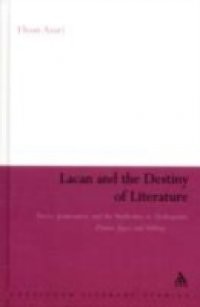In contemporary academic literary studies, Lacan is often considered impenetrably obscure, due to the unavailability of his late works, insufficient articulation of his methodologies and sometimes stereotypical use of Lacanian concepts in literary theory. This study aims to integrate Lacan into contemporary literary study by engaging with a broad range of Lacanian theoretical concepts, often for the first time in English, and using them to analyse a range of key texts from different periods. Azari explores Lacan's theory of desire as well as his final theories of lituraterre, littoral, and the sinthome and interrogates a range of poststructuralist interpretive approaches. In the second part of the book, he outlines the variety of ways in which Lacanian theory can be applied to literary texts and offers detailed readings of texts by Shakespeare, Donne, Joyce and Ashbery. This ground-breaking study provides original insights into a number of the most influential intellectual discussions in relation to Lacan and will fill a recognised gap in understanding Lacan and his legacy for literary study and criticism.

